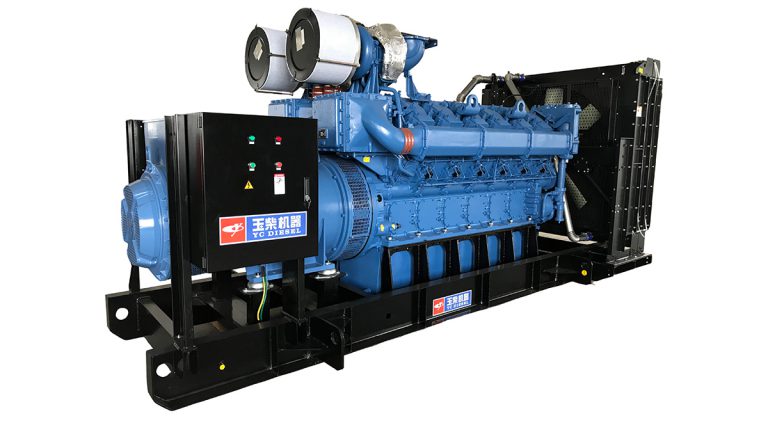Comparison of Diesel Genset and Gasoline Genset
The difference between diesel genset and gasoline genset
1. Fuel: the very first difference is diesel and gasoline, but the engine structures are almost the same.
2. Type of ignition: In the cylinder of gasoline engine, the mixture of fuel and air is ignited by a spark plug. Diesel engine relys on the compression stroke to compress the mixture to the ignition point, so that it ignites automatically, this ignition type is called compression ignition.
3. Power capacity: the power capacity of diesel genset is much bigger than gasoline genset. Diesel genset is ranged from several KW to thousands KW, but gasoline is just up to several KW.
4. Cooling: gasoline gensets are mainly air-cooled, small in size and easy to move; diesel gensets are mainly water-cooled, large in size and inconvenient to move.
5. Application: diesel gensets are mainly used for industrial power supply due to large power and big size, and gasoline gensets are generally used in households.
The advantages of diesel genset

1. Thermal efficiency: it can be roughly defined as the expected workload of the fuel. Diesel engines are known to be 20% more thermally efficient than gasoline engines, thus ensuring a 20% increase in fuel efficiency. Additionally, as thermal efficiency increases, so does power and torque. The greater torque application results in an increased ability to carry heavy loads. This mean the diesel gensets are suitable for industrial use.
2. Fuel cost and efficiency: diesel engines operate at relatively higher temperatures due to increased air compression, which results in more efficient conversion of thermal energy into mechanical energy. This makes diesel engines much more efficient than gasoline engines, sometimes up to 40%. So no matter what the price of diesel and gasoline is, diesel gensets always prove to be more cost-effective.
3. Torque: due to its high compression ratio, diesel engines are able to produce higher torque at relatively low engine speeds. This makes diesel gensets ideal for heavy duty applications.
4. Safety by ignition type: gasoline is highly volatile but has a low flash point. The low volatility of diesel engines is essentially compression ignition, making diesel gensets more secure in remote areas or in special conditions such as mining.
5. Operating cost: the RPM of a diesel engine is much lower than that of a gasoline engine, which is why the diesel engine wears less. This helps to increase the service life of the gensets and also ensure relatively low operating costs. This aspect combined with greater fuel efficiency makes diesel engines ideal for use in gensets.
6. Maintenance cost: as diesel engines have no spark plugs and diesel is a better lubricant than gasoline, it produces relatively few pollutants and corrosives. Additionally, diesel gensets suffer less wear due to their low RPM. All these factors ensure that the maintenance cost of diesel engines is much lower than gasoline engines.
Now the famous and popular diesel engines for gensets are made by Cummins US, Perkins UK, and MTU Germany, they represent the top quality in the world. However the diesel engines from China and Korea are also catching up by economical cost and reliable quality, like Chinese brand Yuchai, and Korean brand Doosan, they are getting more and more famous in the oversea market.





